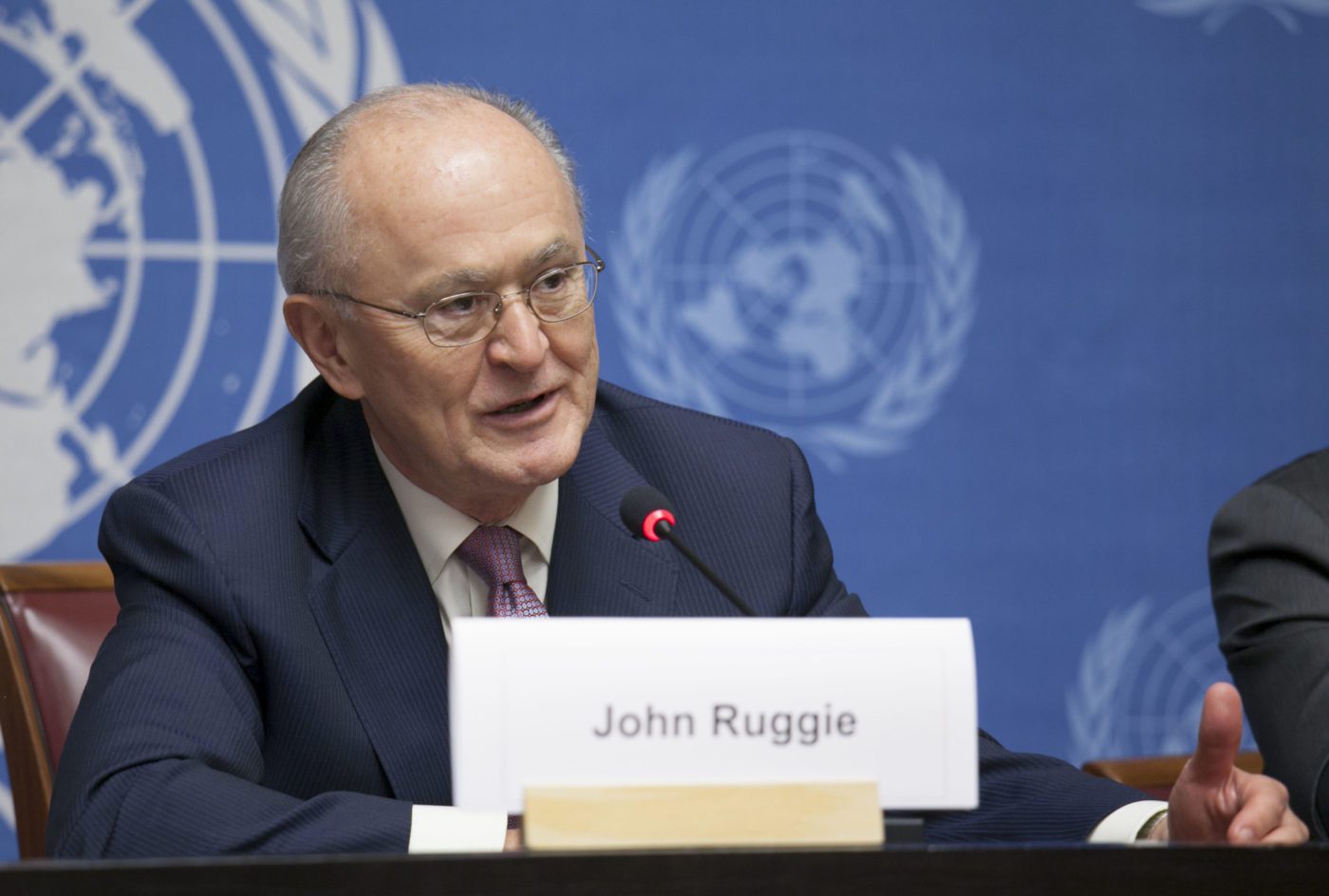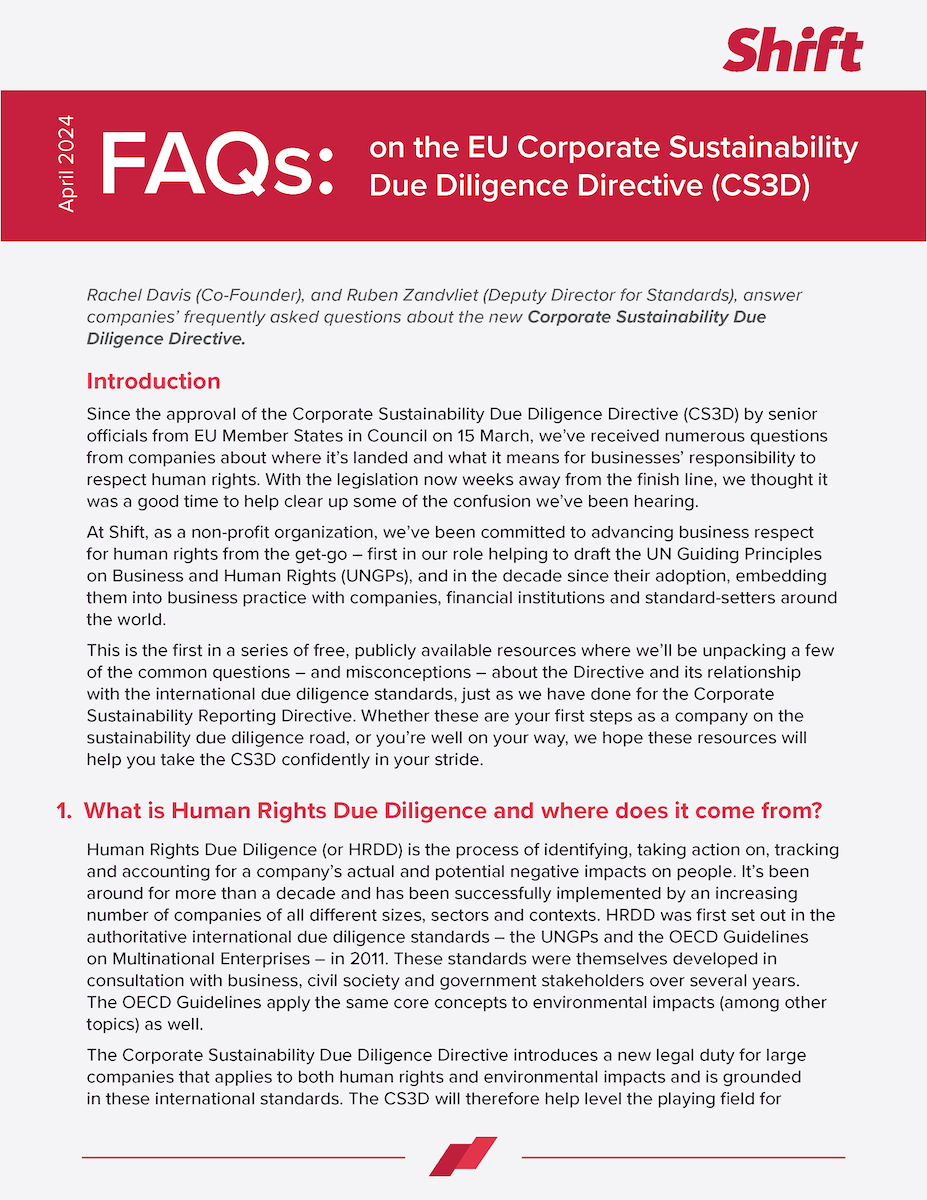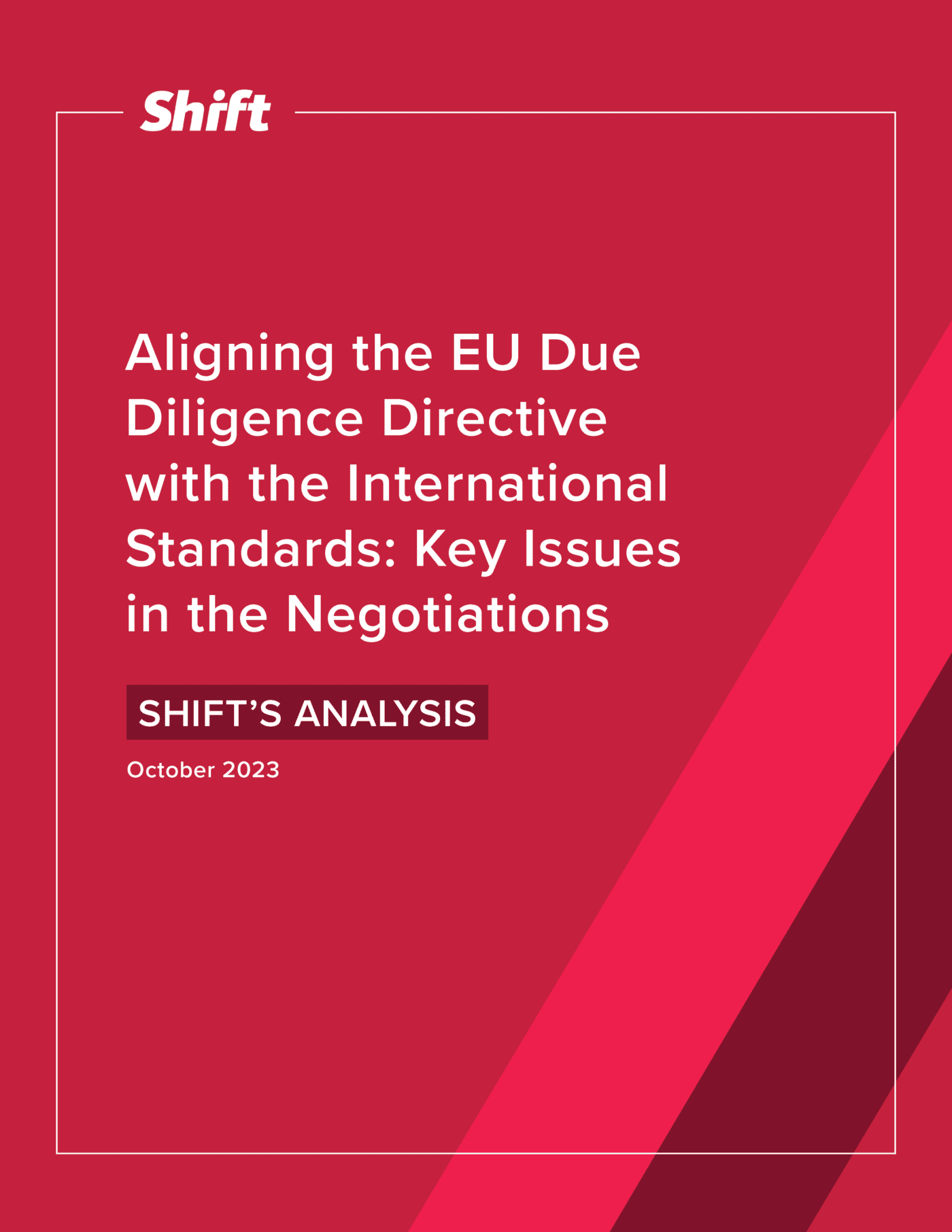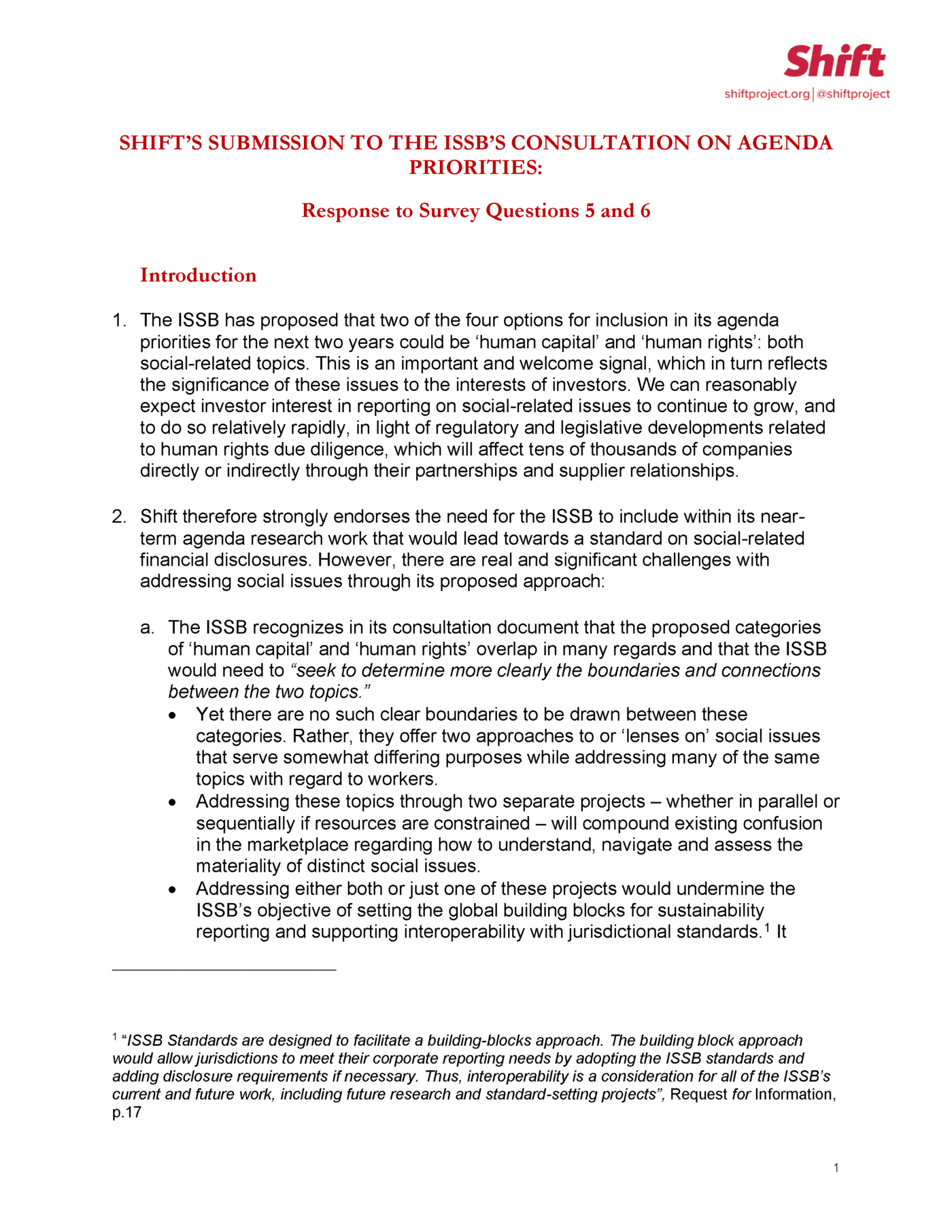The European debate on mandatory human rights due diligence (HRDD) has gained significant momentum in the last year. A number of national initiatives are coming to a head in late 2020, and the European Commission is launching a formal consultation on a potential EU-wide regime on mandatory human rights and environmental due diligence. We have seen growing business support for mandatory HRDD, from both individual companies and business associations, as well as an increase in joint calls by business and civil society for such measures.
As we approach this critical moment, we have been working hard at Shift to support constructive discussions among government, business and civil society allies about the role and content of new regulation. In particular, we have been engaging with businesses that are supportive of new measures, but have concerns about what shape it might take and what the consequences might be.
In this briefing note, we explore what well-designed mandatory HRDD measures could look like, with a focus on the role of accountability – or consequences – for meeting a new legal standard of conduct. We set out three key considerations that we believe businesses that are committed to meeting their responsibility to respect human rights should keep in mind:
- The legitimate role of liability in implementing the UN Guiding Principles
- Incentivizing robust HRDD through accountability measures that go beyond liability
- Assessing the quality of a company’s due diligence
“Effective regulation should take account of the legitimate concerns of various stakeholder groups. For mandatory HRDD, that means forging legislation that speaks to businesses’ concerns that liability on its own won’t incentivize the right kinds of practices and behaviors by companies throughout their value chains. But it also has to address the understandable views of civil society that a failure to meet an agreed standard of conduct should result in robust consequences, including a basis for those harmed to seek remedy.”
Rachel davis, vice president of shift





